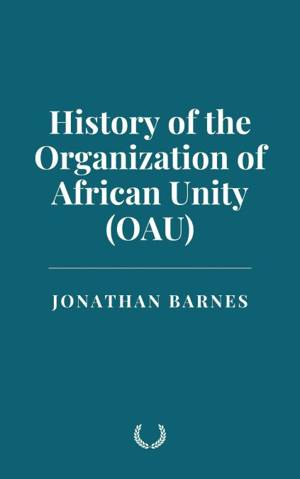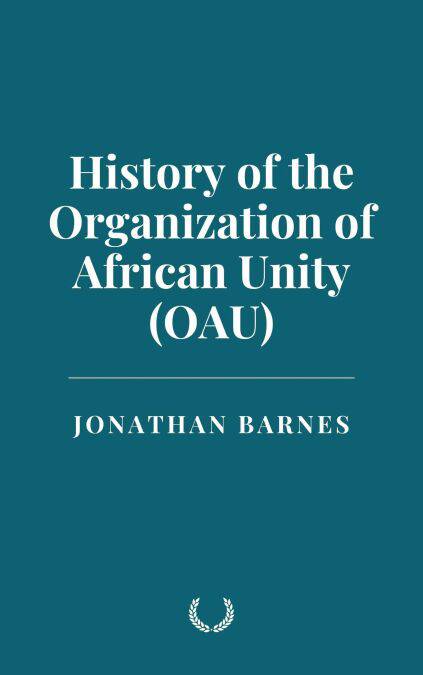
- Afhalen na 1 uur in een winkel met voorraad
- Gratis thuislevering in België vanaf € 30
- Ruim aanbod met 7 miljoen producten
- Afhalen na 1 uur in een winkel met voorraad
- Gratis thuislevering in België vanaf € 30
- Ruim aanbod met 7 miljoen producten
Omschrijving
This comprehensive study explores the history, achievements, and challenges of the Organization of African Unity (OAU) from its inception in 1963 to its transformation into the African Union (AU) in 2002. The OAU was established with the primary goals of promoting Pan-African unity, supporting decolonization efforts, defending the sovereignty and territorial integrity of African states, and fostering economic and social development. Through an in-depth analysis of key events and themes—such as the decolonization of Southern Africa, the anti-apartheid movement, Cold War geopolitics, humanitarian crises, and economic integration—this work examines the OAU's successes and limitations in navigating the complex realities of post-colonial governance.
The OAU's most notable achievements include its support for liberation movements in Angola, Namibia, Zimbabwe, and South Africa, as well as its role in amplifying Africa's voice in international institutions such as the United Nations. The organization's diplomatic solidarity during the anti-apartheid struggle demonstrated the strength of collective action in confronting systemic injustice. However, the OAU's strict adherence to the principle of non-interference in the internal affairs of member states often hampered its ability to address civil wars, authoritarianism, and human rights abuses. Events such as the Nigerian Civil War (1967–1970), Idi Amin's brutal regime in Uganda (1971–1979), and the Rwandan Genocide (1994) exposed the weaknesses of the organization's conflict resolution and peacekeeping mechanisms.
This study also highlights the economic dimension of the OAU's agenda, particularly the Lagos Plan of Action (1980) and the Abuja Treaty (1991), which sought to promote regional integration and economic self-reliance. Despite these ambitious frameworks, external pressures, including structural adjustment programs imposed by international financial institutions, undermined Africa's pursuit of economic sovereignty. The OAU's inability to respond effectively to economic dependency and poverty became a significant critique of its overall mission.
The transition from the OAU to the AU was driven by the recognition that Africa required a more robust and proactive institution capable of addressing the continent's evolving challenges. The Constitutive Act of the African Union introduced new principles, including the right to intervene in cases of genocide, war crimes, and crimes against humanity—marking a departure from the OAU's doctrine of non-interference. The establishment of the Peace and Security Council (PSC), the African Standby Force (ASF), and the African Peer Review Mechanism (APRM) signaled a commitment to promoting democratic governance, peace, and development.
Ultimately, the legacy of the OAU is multifaceted. While the organization played a pivotal role in supporting decolonization, fostering Pan-African diplomacy, and advocating for justice and equality on the global stage, it also struggled to address internal conflicts and governance failures. This study underscores that the OAU's transformation into the AU was not merely institutional reform but an evolution rooted in the lessons of history. The legacy of the OAU continues to shape contemporary debates on African unity, sovereignty, and regional cooperation, serving as both a reminder of past achievements and a cautionary tale about the complexities of post-colonial nation-building in a globalized world.
Specificaties
Betrokkenen
- Auteur(s):
- Uitgeverij:
Inhoud
- Taal:
- Engels
Eigenschappen
- Productcode (EAN):
- 9798230352761
- Verschijningsdatum:
- 6/01/2025
- Uitvoering:
- E-book
- Formaat:
- ePub

Alleen bij Standaard Boekhandel
Beoordelingen
We publiceren alleen reviews die voldoen aan de voorwaarden voor reviews. Bekijk onze voorwaarden voor reviews.









